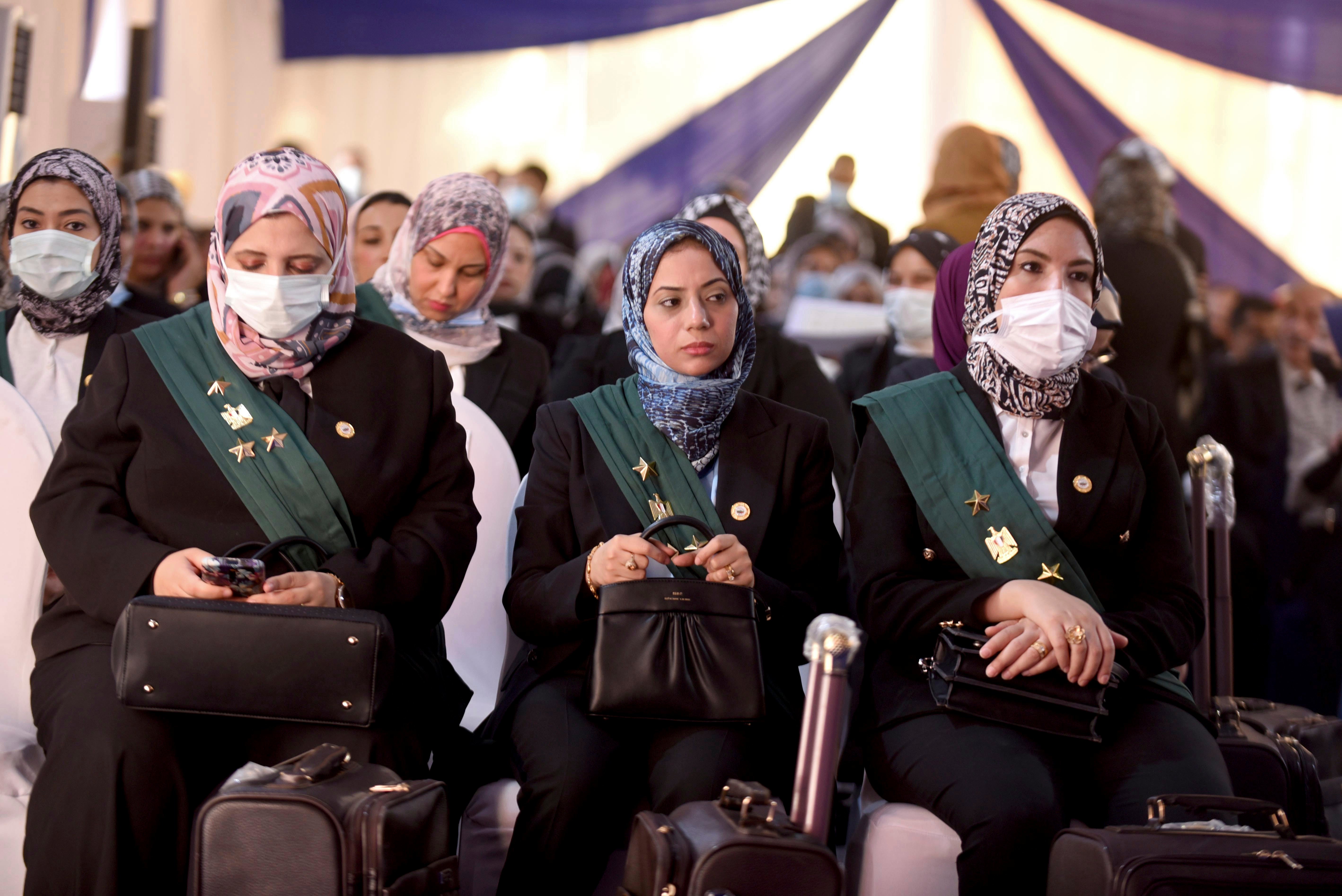Nearly 100 women sworn in as first female judges of Egyptian judicial body
Nearly 100 women have become the first female judges to join Egypt’s State Council, one of the country’s main judicial bodies

Your support helps us to tell the story
From reproductive rights to climate change to Big Tech, The Independent is on the ground when the story is developing. Whether it's investigating the financials of Elon Musk's pro-Trump PAC or producing our latest documentary, 'The A Word', which shines a light on the American women fighting for reproductive rights, we know how important it is to parse out the facts from the messaging.
At such a critical moment in US history, we need reporters on the ground. Your donation allows us to keep sending journalists to speak to both sides of the story.
The Independent is trusted by Americans across the entire political spectrum. And unlike many other quality news outlets, we choose not to lock Americans out of our reporting and analysis with paywalls. We believe quality journalism should be available to everyone, paid for by those who can afford it.
Your support makes all the difference.Nearly 100 women Tuesday became the first female judges to join Egypt’s State Council, one of the country’s main judicial bodies.
The 98 women were sworn in before the council’s chief judge, Mohammed Hossam el-Din, in a celebratory event in Cairo
The swearing-in came months after President Abdel Fattah el-Sissi asked for women to join the State Council and the Public Prosecution, the two judicial bodies that until recently were exclusively male.
El-Sissi’s decision in March was applauded by many women’s rights activists. Egypt’s National Council for Women said at the time that the move represented a political will to further empower women.
Established in 1946, the State Council is an independent judicial body that mainly handles administrative disputes, disciplinary cases and appeals. It also reviews draft laws, decisions and contracts to which the government or a government-run body is a party.
The council had repeatedly rejected women applicants. In recent years, many women challenged council decisions, arguing that they were discriminated against.